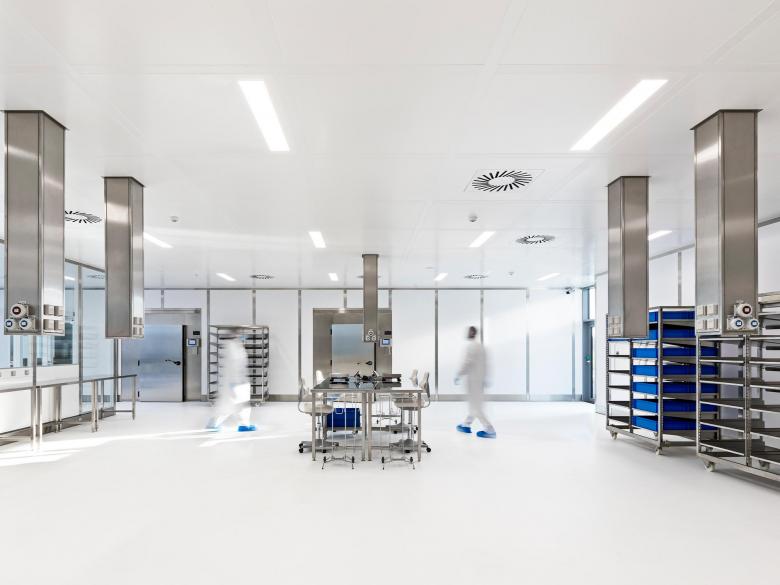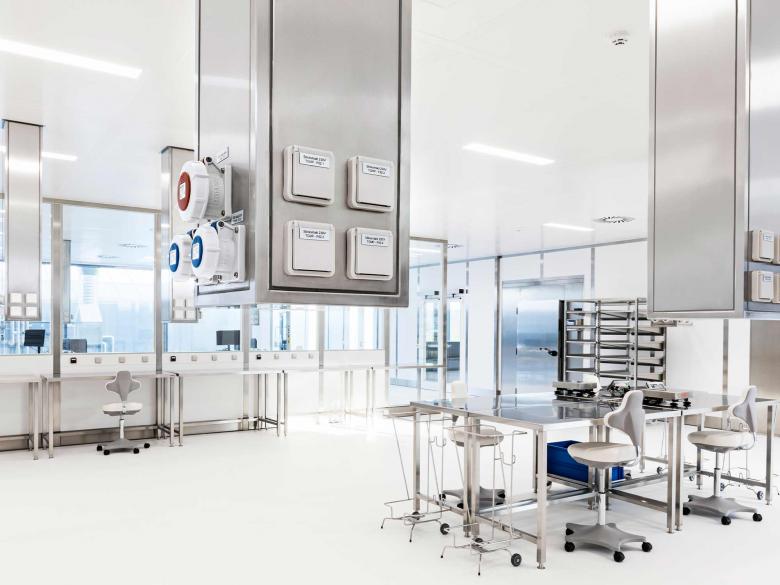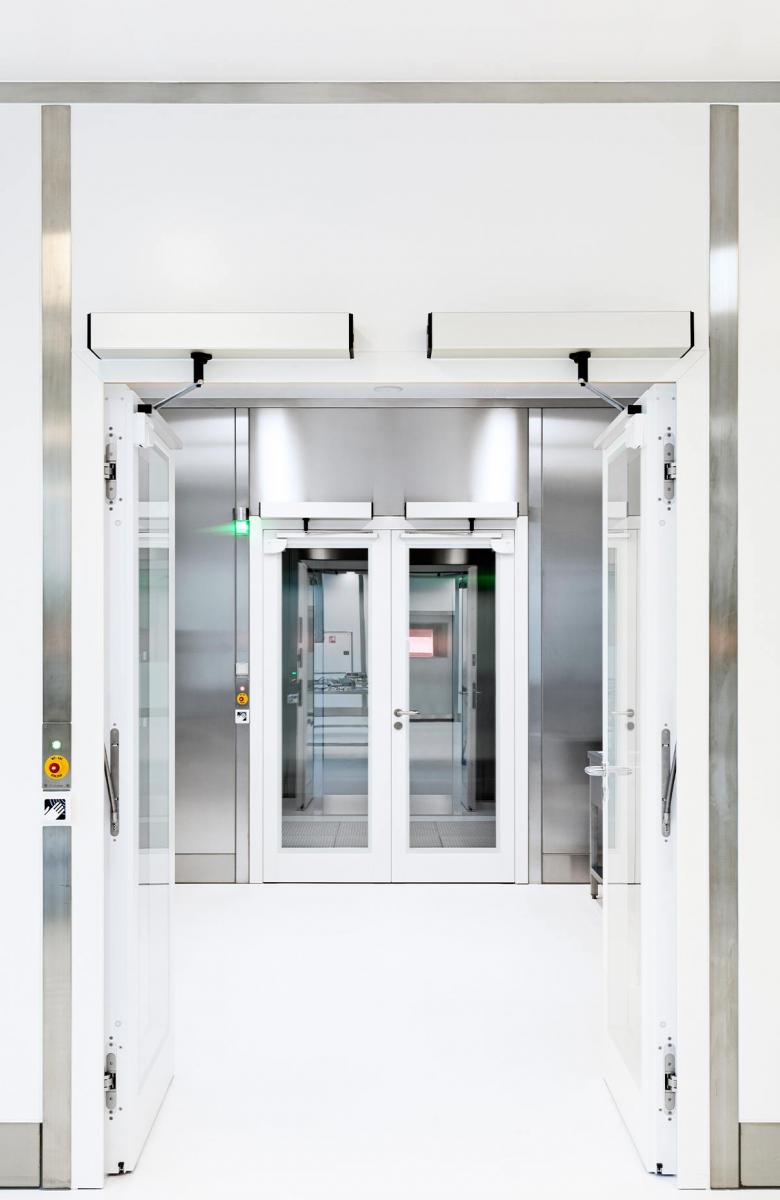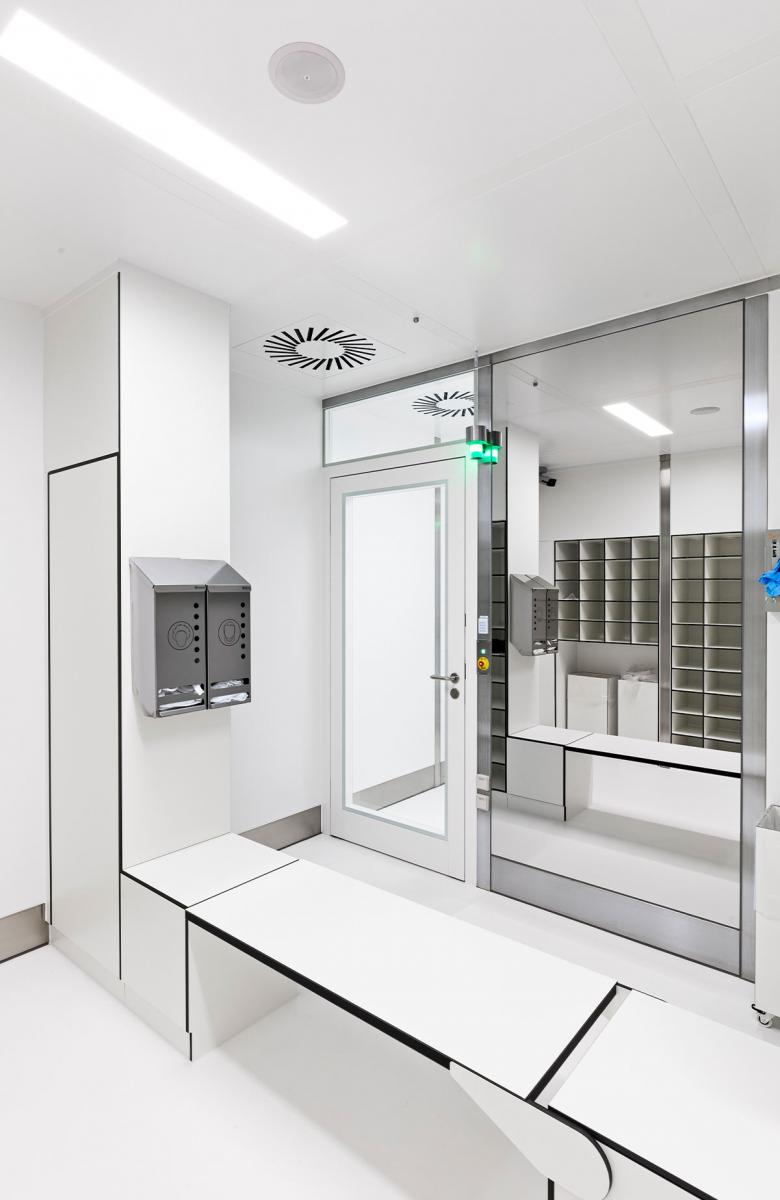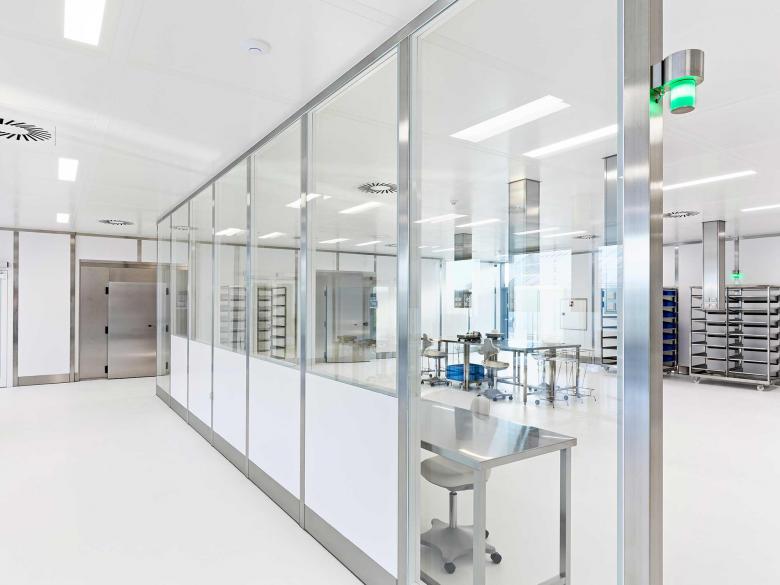
Progressive cleanroom expansion
Back to Projects list- Location
- Marslev, Denmark
- Year
- 2020
- Team
- Lindner SE | Clean Rooms
- Architect
- Koppenhöfer + Partner
PROGRESSIVE CLEANROOM EXPANSION FOR CANNABIS PRODUCTION
Biopharmaceutical Company in Denmark forging ahead
In a small Danish community, a special plant is thriving in one of the world's most modern hybrid greenhouses: medical cannabis is grown on 1,000 m² there. In the immediate vicinity of the greenhouse, the owner – a biopharmaceutical company – produces the active ingredients for its products under strictly controlled conditions: in state-of-the-art cleanrooms, therapy options for pain patients and patients with chronic diseases are developed here.
High-performing surroundings for new therapies
In 2020, the company's premises in Denmark were expanded with a new building designed by architects Koppenhöfer + Partner. Lindner SE | Clean Rooms were responsible for the interior fit-out of class ISO 9/GMP D cleanroom areas and the connecting spaces together with a Danish general contractor. Purity down to the smallest detail and innovative design are now ensured by numerous interior fit-out products from Lindner’s cleanroom portfolio.
A look at the ceiling, for example, shows the visible post cap of the Line 80S Type 2 cleanroom ceiling with a width of 80 mm. The system is fully walkable and thus supporting easy maintenance of all installations routed through the ceiling cavity. The walk-on level is homogeneous and has no protrusions. All ceiling joints have cleanroom-compatible sealing to ensure maximum impermeability. Ceiling outlets for air supply and extracted air ensure the necessary positive pressure in the room.
Optimum lighting conditions are provided by linear recessed Lindner LED luminaires integrated flush into the ceiling system. In order to guarantee absolute impermeability here as well, the luminaires’ glass panes are connected to the ceiling panels and sealed all around to ensure cleanroom compatibility. The luminaire housing is mounted from above.
The partition panels are made of high-quality stainless steel: The Lindner Pharma 80S partition wall system is partially finished with duplo polish and partly with white RAL 9003 powder coating. At intervals of 1,200 mm, the wall panels are interrupted by stainless steel posts, resulting in a harmonious overall appearance. With automatic drive and lock control, the flush-mounted Swing Pharma 80 door system provides access to the cleanrooms. The locking system Inline 2 locks the door systems in the personnel airlocks against each other, thus reducing the risk of cross-contamination. Lindner also installed high-speed roller shutters from the manufacturer Assa Abloy. Additional light is provided by glass inserts in partition walls and door systems.
The cleanroom and airlock furnishings mounted by Lindner are from the manufacturer Kemmlit. The stainless steel media columns floating freely on the ceiling are a retrofitted special solution from Lindner. Overall, state-of-the-art cleanroom technology and clean design enter into a perfect symbiosis here and convey, technically and visually, the company's claim to drive innovative research and drug development.
Architect Tobias Graf of Koppenhöfer + Partner on the project:
“The clients’s deadlines for the planning phase as well as the execution of the project were very ambitious. The facility, an extension attached to an existing greenhouse, was to be built and commissioned in the shortest possible time.
KOP and their planning partners implemented the Matrix Design Approach to ensure an acceleration of the design process to achieve these objectives. The design philosophy is based on a modular grid for the entire building and its elements. Its design catalogue includes predefined and standardized components for building structure, facade, cleanroom, change facilities and technical installations.
The outcome provides the client with a highly flexible and easily adaptable platform factory. The advantage of these Matrix-facilities is a rapid reaction time to future changes with minimized interruptions of running operations.”
